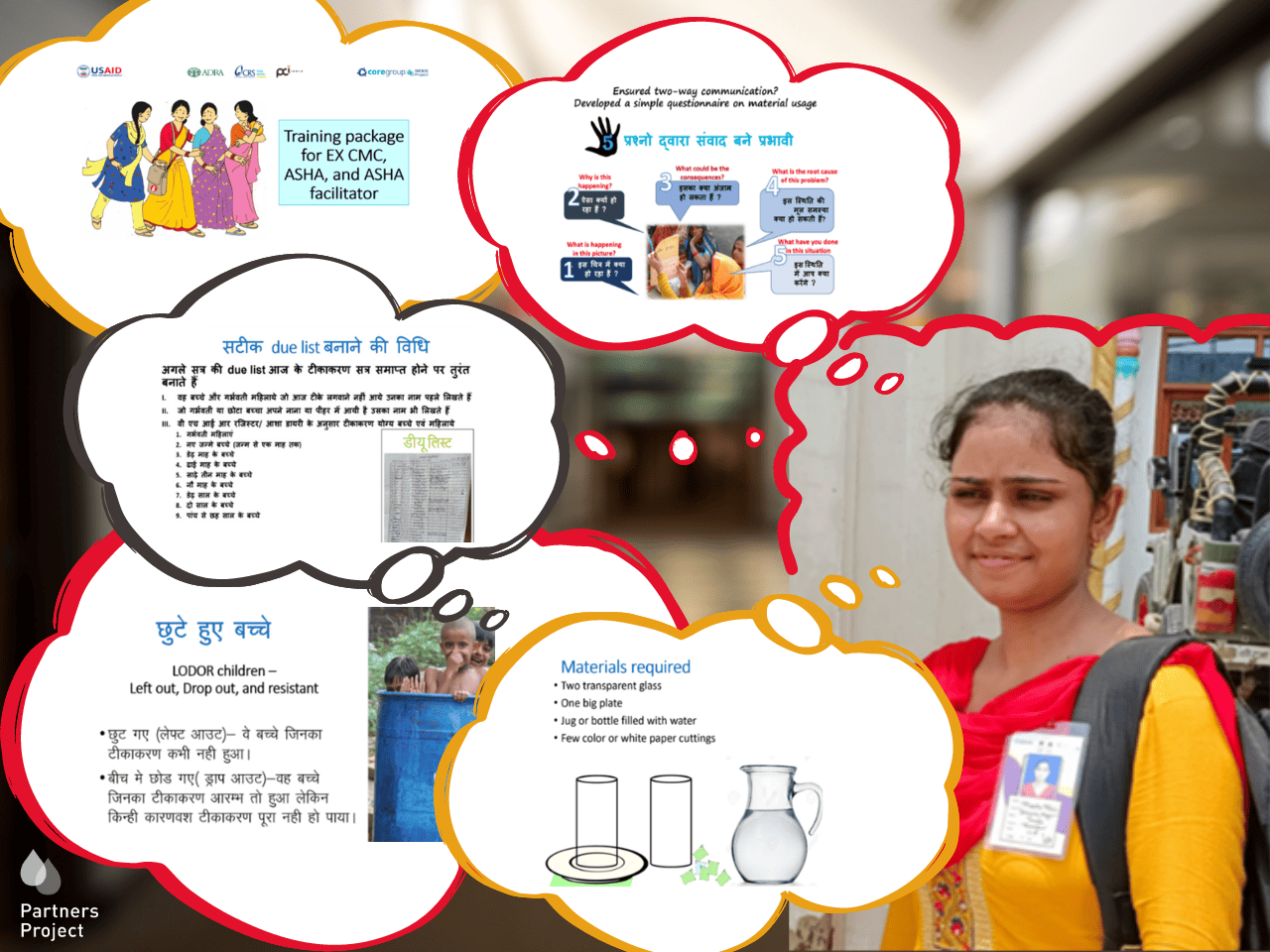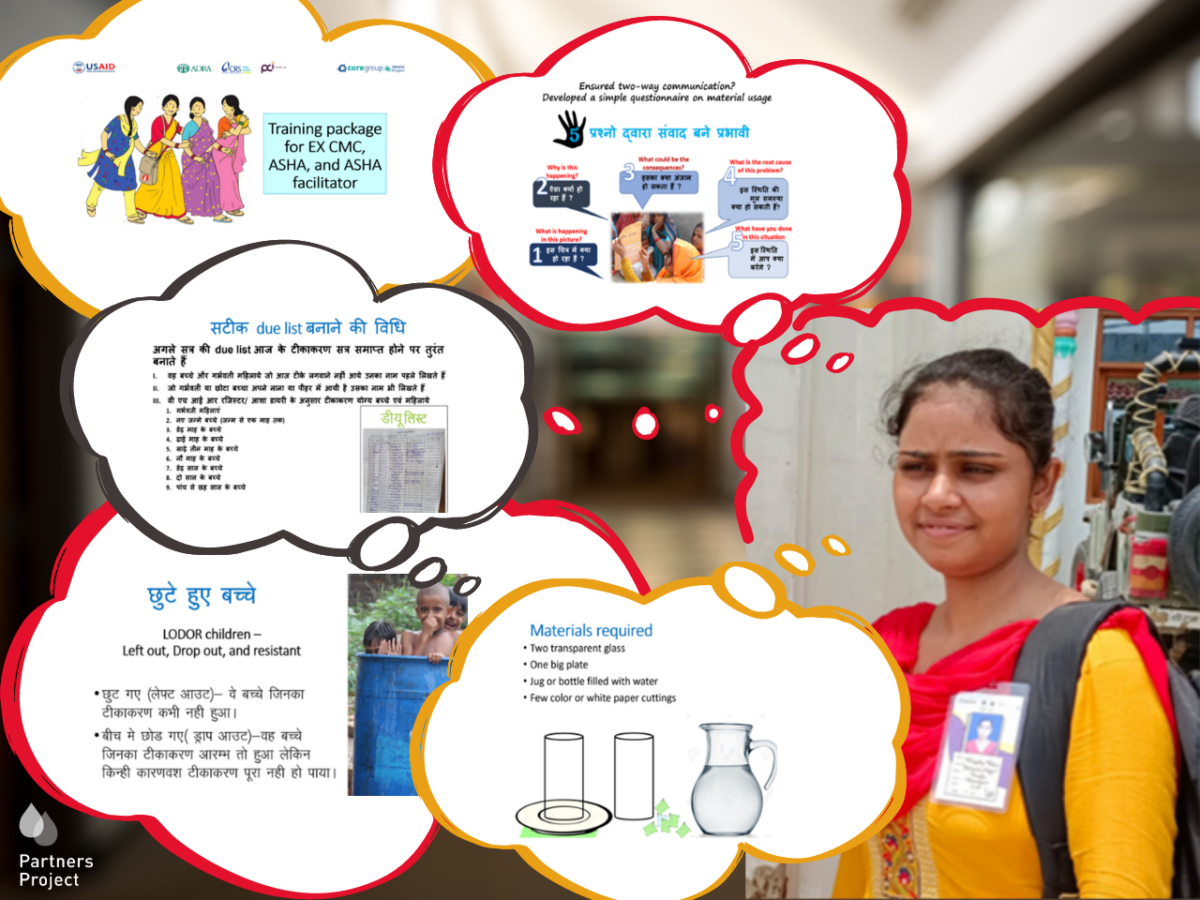“It was the proudest moment of my life when I was called by the health department to conduct a training session for ASHAs and vaccinators on interpersonal communication skills,” said Rita Rani, of Tanda, Rampur, India, a member of the communication expert group (CEG) — a group of former community mobilizers who already have rapport within their communities and are being trained as expert health communicators. “I have learned many things in the last ten years of my journey with the CORE Group Partners Project (CGPP), gained technical knowledge on how vaccines work, and also learned about the 12 vaccine-preventable diseases,” she said.
Formed in 1999, CGPP India vigilantly addresses pockets of low immunization coverage by reaching significant populations of migrants and underserved communities with effective communication interventions for polio campaigns and routine immunization sessions.

Up until 2020, the CGPP-supported Social Mobilization Network (SMNet), CGPP reached chronically neglected and underserved populations. With its extensive reach, the SMNet provided support through social mobilization activities in a total of 13 high-risk districts. The highly respected network of motivated and dedicated mobilizers tapped into years of knowledge, resources and skills to establish trusted relationships with families. The SMNet served as a blueprint for connecting with people, cultures, and communities to improve health maternal and child health outcomes in complicated settings. Following its transition plan, CGPP India disengaged CMCs in April 2020. However, since then, more than one thousand community mobilizers who were previously part of the SMNet have since acquired knowledge and skills in social and behavior change communication. CGPP has offered capacity training for them to use their skills in other health and social welfare projects.
“During the pandemic, CGPP trained me on the symptoms of COVID and preventive measures,” Rita said. “Apart from gaining knowledge on disease prevention, I enhanced my communication skills, particularly on how to establish faith in the community, build rapport, and listen to the problems with empathy before responding. I feel confident conducting the communication sessions with pregnant women, mothers with newborns, and refusal families.” At the end of a recent training, Rita said that she and her colleagues “felt so happy because it was the first time the health department had invited us as trainers, and the participants were also delighted as they shared their feedback that the session was very engaging and interactive.”

